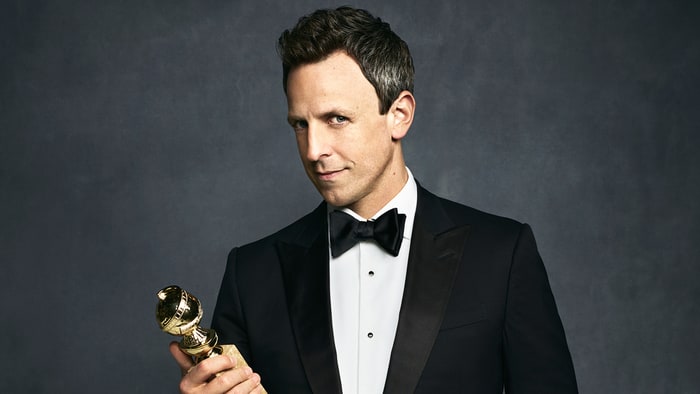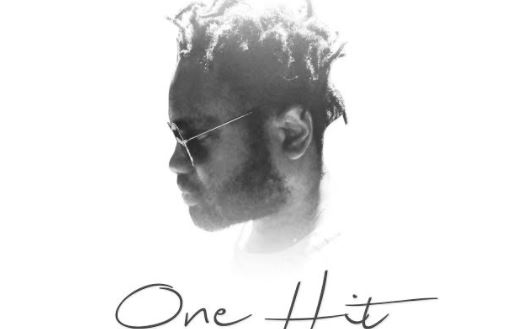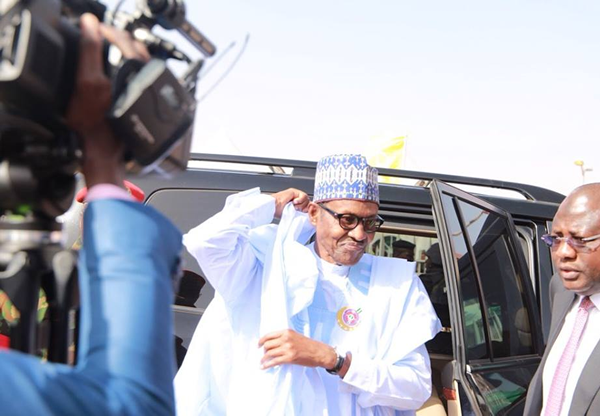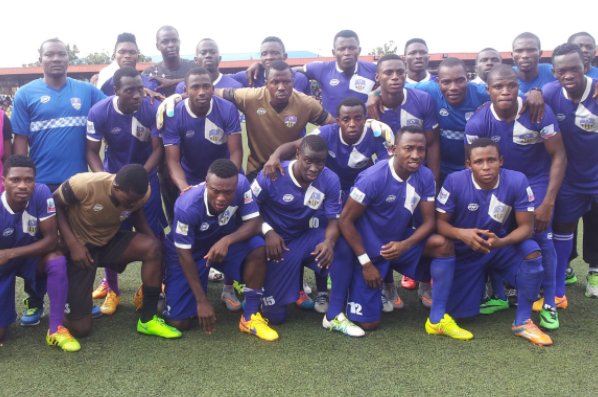Nigerians were created for elections. We live for elections. We breathe elections. As one election is rounding off, we are already discussing the next one. In fact, before one election holds, we start doing permutations on the one after it. We are preparing for the 2019 presidential election, but already discussing 2023. Elections offer us the biggest excitement, like a kid and his candy. Who should we vote for? Whose turn is it? What are the cold calculations? It is not completely a bad idea to be in love with elections — that is a major pillar of democracy. The citizens are able to exercise their power of choice. To be excited about elections is in fact lovely.
However, for us Nigerians, elections are not seen as a means to an end; elections are an end in themselves. That is the impression I get all the time. The excitement should be about how elections can help us choose leaders that can take Nigeria out of the inglorious club of backward nations. The excitement should be about visions, about goals, about capacity. How can the ordinary people enjoy quality healthcare, sound education, constant power, excellent roads, clean water and assured security? How can food and shelter become affordable for the majority of our people? How can poor Nigerians begin to live like proper human beings?
I have taken time to study Nigerian leaders, both elected and unelected, from pre-Independence era till date. I studied not just presidents and heads of state but also premiers, ministers, governors, commissioners, heads of agencies, council chairpersons and councillors. I saw patterns. I saw characteristics. I saw high points. I saw low points. And I drew a number of conclusions. I will be discussing some of these conclusions in a series of articles. My aim today is fairly clear — I want to douse the perennial ecstasy about elections. We need to pay more attention to the purpose than the act. We are obsessed more with form than substance. We love rhyme more than reason.
Obviously, elections in themselves do not make a good or bad leader. You can vote for whoever you like — it is what the leader has in his head that will make the difference to the fortune of the country. Election-time rhetoric and sentiments serve a purpose, I won’t deny that, but they play very little role in the success or failure of a leader. So as we do analyses and permutations on who will win north-central and south-south in 2019, and where the running mate should come from, can we spare a moment to ask ourselves this question: where did previous permutations land us? Has Nigeria been getting better with every new permutation and excitement?
Advertisement
This is my digression today. The leaders Nigeria needs, the leaders we badly need, the ones we really, really need, are those who have a good mental picture of what the society should look like. That is the starting point. I have said this a zillion times: development does not happen by accident. We won’t stop importing petroleum products by accident. Our hospitals will not become centres of excellence by co-incidence. Our highways will not become smooth and safe through a miracle. The countries we admire today are a product of vision — that mental picture of what you want to be. Human beings sat down, drew up plans, implemented the plans and began to see results.
If, therefore, Mr. Lakasegbe wants to be president (or governor) with the single mind of making the society a better place, everything he does will be towards bringing this picture to reality. To what do I liken this? Let’s say you want to build a house. You have a mental picture of a five-bedroom storey building with a swimming pool and a garden, all rooms en suite and all that. You engage an architect and tell him what you want. He gives you a design. The quantity surveyor prepares the budget. You draw up milestones. You begin to engage the hands that will translate the design to a physical structure. Everything you do will be how to bring the house down from your head to the ground.
For Mr. Lakasegbe, ethnicity or religion wouldn’t matter so much to him in putting together his team to deliver his vision of Nigeria. Who voted for him and who didn’t vote for him wouldn’t be an item on his mind. The single mind would be like: I want Nigeria to be at a minimum of 30% level of South Korea in my first term and 60% if I get a second term. He will know that to be like South Korea, there are fundamental and foundational things that must be in good shape in critical sectors. He will automatically know that certain things are non-negotiable — education, healthcare, security, rule of law and physical infrastructure, such as roads and power.
Advertisement
In picking his core team, he will go for those who can make the dream come true, not people he owes favours. In building your house, you can afford to do favours in hiring labourers, but you cannot do favours in engaging engineers and builders. That is your core team. Good enough, there is no state, ethnic group or religion in Nigeria that does not have competent and qualified people, so Lakasegbe can still achieve balancing without sacrificing merit. Every decision, every policy will be geared towards realising the vision — not moving away from it. Even when he wants to adjust his plans to accommodate new realities, the single mind remains to achieve this vision.
Anyone in the team who is not helping the vision will be shown the exit door. Remember, the mental picture will get distorted if his helpers are not on the same page with him. Pruning and weeding is a continuous, natural process. Remember, too, that he must assess his goals and milestones to be sure the vision is on course. He will not steal or waste resources — or look the other way — because he surely knows every kobo is vital to the realisation of the vision. The determination to deliver on the vision, in spite of challenges and hindrance, will continue to be the biggest motivation. You don’t stop building a house because some “omo onile” are disturbing you.
This vision will be marketed as a national vision, as everybody’s vision, not his sole property. Selling the vision, planting the vision and sustaining the vision include having all hands on deck. Many leaders fail when they make themselves the Alpha and Omega of the vision. At that point, they fail to groom successors — they see themselves as the only one who can do it and tend to want to perpetuate themselves in power. Lakasegbe’s vision should be such that if he will do only one term, whoever succeeds him can carry on. A country like the UK has changed prime ministers several times in 11 years, yet the system is unshakable. That’s how to build a proper system!
In the history of Nigeria, we have not lacked visionary leaders. And that is a ray of hope. However, there has always been a major failing somewhere. Some got consumed by personal ambition, arrogance or greed. Some did not know how to play politics pragmatically in order to take hold of power at higher levels and be in a position to help change the country. Some were so self-centred they wanted to be all-in-all and therefore failed to groom a pool of successors — or help their mentees gain political power. At the end, Nigeria loses. We plan, we implement haphazardly, we fail. We take one step forward and two backward.
Advertisement
I am sorry to disappoint you if what you were expecting was an analysis of presidential candidates and my recommendation for 2019. I am aware that there are hot debates over President Muhammadu Buhari, Alhaji Atiku Abubakar, and Governor Aminu Waziri Tambuwal, etc. I have passed that stage. I am no longer excited by all the permutations we do every four years. I am a young man but I can claim to have seen it all. My personal resolve, after experiencing so many disappointments, is that I will, in my little corner, continue to constructively engage with whoever holds power. They must use it in the interest of Nigeria’s progress.
I throw this challenge at the civil society: a lot of non-partisan work needs to be done in-between elections to hold the elected to account. We currently don’t do this well. We fall asleep after each election, waiting for the next one. The pressure to deliver is not really there for our leaders. Maybe we make an assumption that they know what to do and are deliberately failing. Well, if they don’t know, we have to put them on the right track. If they fail, we will all suffer the consequences. We usually say if a leader performs poorly, voters should get rid of him in the next election. Good point, but we also assume that a new leader will do better. I am no longer that optimistic.
I have resolved to encourage those in power to have a vision and a plan — if they never had any — and to pursue this with a single mind, though tribes and tongues may differ. Visioning is no magic. It is about using your brain, or borrowing other people’s brains. I insist that permutations at election times are secondary to development. I hope that in my lifetime, I will witness a Nigerian election in which our dominant ecstasy will be about visions and not emotions. I have resigned from the committee of those celebrating false dawns and getting excited over new rhetoric and new rhyme and new permutations. Once beaten, twice beaten, thrice beaten — I’m done.
AND FOUR OTHER THINGS…
KILLING FOR FUN
Advertisement
The Yoruba will say “if your dress harbours lice, your nails will continue to be stained with blood”. The ethno-religious killings in northern Nigeria have their roots in a history of intractable mutual hate and suspicion. Recently, though, things have been getting out of hand, usually between the herders, who are mainly Fulani Muslim, and farmers or local populace in mostly Christian areas. It is a case of aggression and reprisal — laced with accusations and counteraccusations of genocide. More is expected of President Buhari in tackling the gruesome bloodbath. I can see anger and disappointment everywhere over the less-than-decisive measures. Puzzling.
ON THE RICE
Advertisement
As usual, the one thing that drew big reaction from the New Year speech of President Buhari was his stand on restructuring. But he said something bigger that would put food on our table: Nigeria will become self-sufficient in rice this year. In simple English, we will stop importing rice. This should come with value addition, jobs and conservation of our currency reserves. Nigeria was one of the biggest importers of rice, meaning we were busy creating jobs in Thailand and Vietnam who did not even have embassies in Nigeria. Buhari must, however, remember to give credit to Presidents Obasanjo, Yar’Adua and Jonathan who planted and watered the rice policy. Fairness.
RAILING AT BEN BRUCE
Advertisement
A tweet by Senator Ben Murray Bruce on the new Kaduna–Abuja train service has caused a storm. He said it was “entirely” the handiwork of President Jonathan. Governor Nasir el-Rufai countered, saying President Obasanjo initiated it. Both men are somewhat correct. Obasanjo conceived it (along with the Kano-Lagos rail). Yar’Adau stopped the project because initial payments were made from the excess crude account without appropriation or engineering design. Jonathan then did most of the work. President Buhari is completing it. Jonathan certainly deserves big credit. But I think we should be more worried that it took 12 years to deliver on a 200-kilometre rail. Shame.
LIBEL HANDCUFFS
Advertisement
Nigeria is the only country in the world where someone is arrested and handcuffed over an allegation of libel. A blogger was arrested on New Year’s Eve by the police over a publication considered libellous to the inspector-general. As a trained journalist, I know the implications of libel and I am worried by the amount of libel we publish everyday in Nigeria (I dare say no media outlet is exempt). But to the best of my knowledge, libel is a civil matter in civilised societies. It is only in banana republics that the criminal libel law is applied to the personal affairs of a public official. Nigeria is becoming a disgrace. This madness must stop. Immediately.
Add a comment







